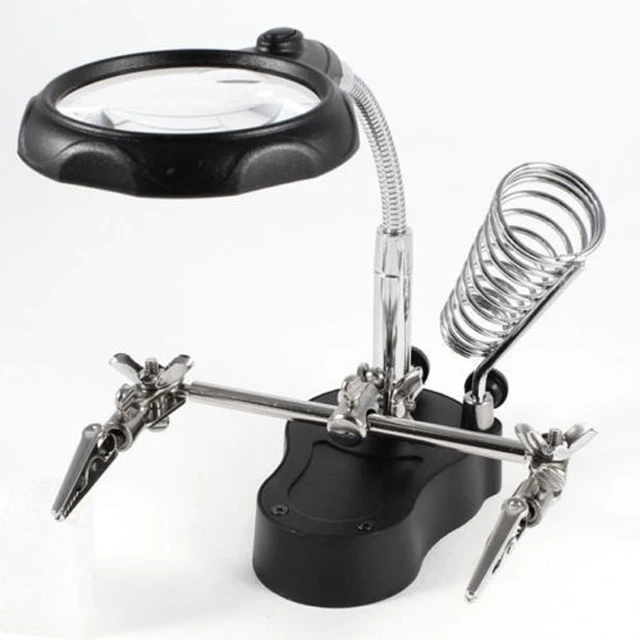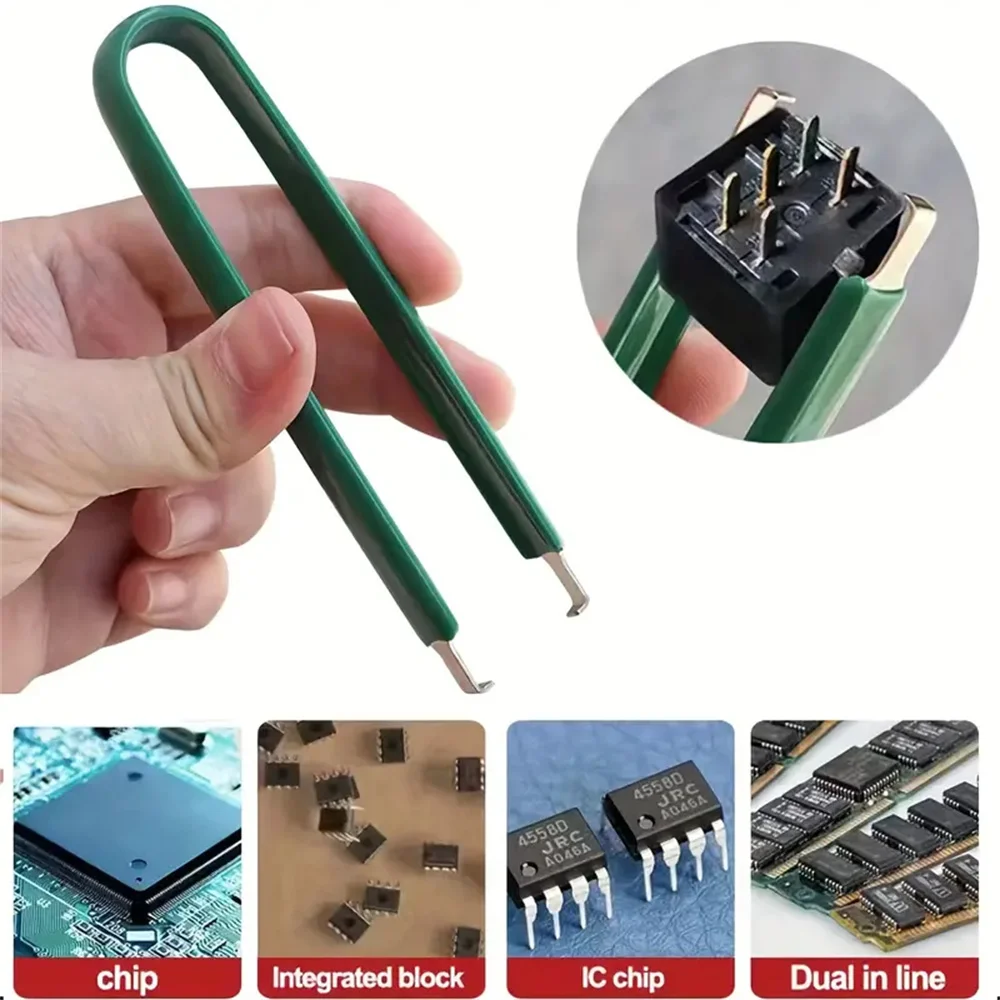I have a new post on Hackaday: Barcodes, “Lasers”, And Fourier Transforms.
Module Monday #8: HW-038 Water Level Sensor Module | Learning Electronics In The Lab With Jay Jay
This post is part of my video blog and you can find more information about this video.
You can support this channel on Patreon: patreon.com/JohnElliotV
Silly Job Title: Electronics Guy. I am the Electronics Guy!
Today is Module Monday.
In this video we take a look at the 1pcs Rain Water Level Sensor Module Detection Liquid Surface Depth Height For Arduino.
The code for this Arduino sketch is here: 2025-11-24-HW-038-Water-Level.ino.
Thanks very much for watching! And please remember to hit like and subscribe! :)
Following is a product I use picked at random from my collection which may appear in my videos. Clicking through on this to find and click on the green affiliate links before purchasing from eBay or AliExpress is a great way to support the channel at no cost to you. Thanks!
Yutiars Round Paint Brushes notes notes |
Let’s go shopping!
Old Book Teardown #19: Encyclopedia of Electronic Circuits Volume 6 (1995) | In The Lab
This post is part of my video blog and you can find more information about this video.
You can support this channel on Patreon: patreon.com/JohnElliotV
Silly Job Title: Technical Director. I am the Technical Director!
In this video we take a look inside Encyclopedia of Electronic Circuits Volume 6 by Rudolf F. Graf and William Sheets.
Some circuits of interest included:
| Page | Circuit |
|---|---|
| 387 | Heartbeat Transducer |
| 531 | Geiger Counter |
| 663 | FM Bug |
And some new terms that we learned were:
- AGC: Automatic Gain Control
- ALC: Automatic Level Control
- IF: Intermediate Frequency
- He: Helium
- Ne: Neon
Thanks very much for watching! And please remember to hit like and subscribe! :)
Following is a product I use picked at random from my collection which may appear in my videos. Clicking through on this to find and click on the green affiliate links before purchasing from eBay or AliExpress is a great way to support the channel at no cost to you. Thanks!
Yum Cha TE-801 Third Hand notes notes |
Let’s go shopping!
Making Actually Useful Schematics In KiCad
I have a new post on Hackaday: Making Actually Useful Schematics In KiCad.
Mail Call #52: Maker Advent Calendar, Banana Cables, Test Probes, Brushes and More! | In The Lab
This post is part of my video blog and you can find more information about this video.
You can support this channel on Patreon: patreon.com/JohnElliotV
Silly Job Title: Fixeruperer. I am the Fixeruperer!
In this video we take a look at what arrived in the mail from AliExpress, Amazon, and The Pi Hut:
- Maker Advent Calendar – The 12 Projects of Codemas (inc. Raspberry Pi Pico H)
- Zero: The Biography of a Dangerous Idea
- Mothers Choice Outlet Plug Protectors (24 Pack)
- Cleqee P1036B 4mm Banana To Banana Plug Test Lead Kit for Multimeter Match Alligator Clip U-type & Puncture Test Probe Kit (Color: 30PCS Test Lead Kit)
- 15pcs Automotive Diagnostic Test Probe Puncture Needles Oscilloscope Probe Pins Set Repair Tool Accessories
- 304 Stainless Steel Flat Washer M1.6 M2 M2.5 M3 M4 M5 M6 M8 M10 M12 M14-M22 Metal Gasket Meson Sealing Plain Washers Spacer Shim (M3x15x0.8 x20pcs, M3x9x0.8 x50pcs, M3x8x0.8 x50pcs, M3x7x0.5 x100pcs)
- 10/50X 304 Stainless Steel Cross Recess Phillips Pan Round Head Flat End Self Tapping Screw M1.2 M1.4 M1.7 M2 M2.6 M3 M3.5 M4 M5 (50pcs M3, 8mm)
- A Set Chinese Calligraphy Brush ceramics Hook Line Fine Paint Brush Pen Weasel Mouse Whisker Stone Badger Hair Paint Brush (Color: 3Pcs)
- 00000 Fine Tip Paint Brush Set for Acrylic, Models, Mini Miniature Detail , Nylon Hair Thin Extra Fine Paintbrushes (Color: 6pcs)
- MAX7219 Dot Matrix Module 32×8 4 in 1 LED Display Modules Drive with 5Pin Wires for Arduino Raspberry Pi (Color: red)
- 15Pcs/Set Sandpaper 400 600 3000 800 1000 1200 1500 2000 2500 Grit Sand Paper Water/Dry Sanding Paper Abrasive Tools
- 5pcs White Acrylic Marker,Permanent Pen Art Supplies for Black Paper,Tire,Plastic,Stone,Metal,Painting for Artists,Beginners (Color: 5pcs)
Thanks very much for watching! And please remember to hit like and subscribe! :)
Following is a product I use picked at random from my collection which may appear in my videos. Clicking through on this to find and click on the green affiliate links before purchasing from eBay or AliExpress is a great way to support the channel at no cost to you. Thanks!
Yum Cha IC Puller |
Let’s go shopping!
Learning the Art of Electronics: 1L.2.4.1 Measure Your DVM’s current output in diode test mode | In The Lab
This post is part of my video blog and you can find more information about this video.
You can support this channel on Patreon: patreon.com/JohnElliotV
Silly Job Title: Wattage Warlock. I am the Wattage Warlock!
In this video we continue to work our way through Learning the Art of Electronics. In this video we continue with 1L Lab: DC Circuits and measure our DVM’s current output in diode test mode.
We use the Fluke 17B+ Digital Multimeter for voltage and current measurements.
We use the EEVblog BM2257 Digital Multimeter for voltage and current measurements.
We use the Carpenter Mechanical Pencil to take notes.
We use the Kaisi S-160 45x30cm Repair Mat as our workspace.
Thanks very much for watching! And please remember to hit like and subscribe! :)
Following is a product I use picked at random from my collection which may appear in my videos. Clicking through on this to find and click on the green affiliate links before purchasing from eBay or AliExpress is a great way to support the channel at no cost to you. Thanks!
Yum Cha 9 in 1 Air Quality Meter |
Let’s go shopping!
Internet Archive Hits One Trillion Web Pages
I have a new post on Hackaday: Internet Archive Hits One Trillion Web Pages.
Exploring The Performance Gains Of Four-Pin MOSFETs
I have a new post on Hackaday: Exploring The Performance Gains Of Four-Pin MOSFETs.
TMS9900-based Home Brew Computer
I have a new post on Hackaday: TMS9900-based Home Brew Computer.
An Introduction To DC Motor Technology
I have a new post on Hackaday: An Introduction To DC Motor Technology.
